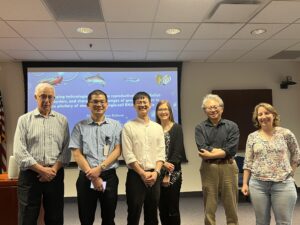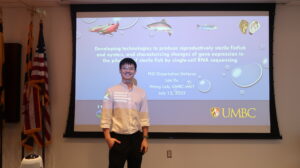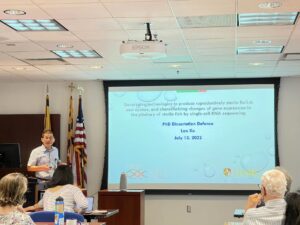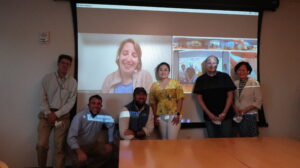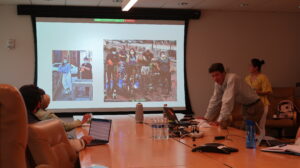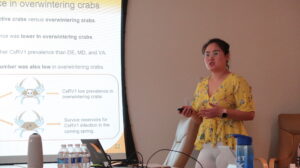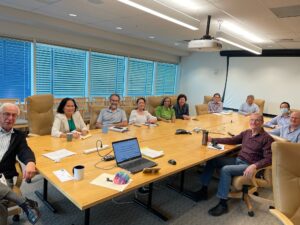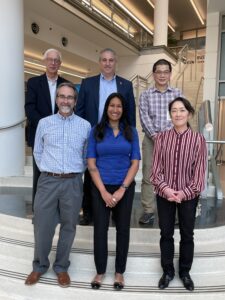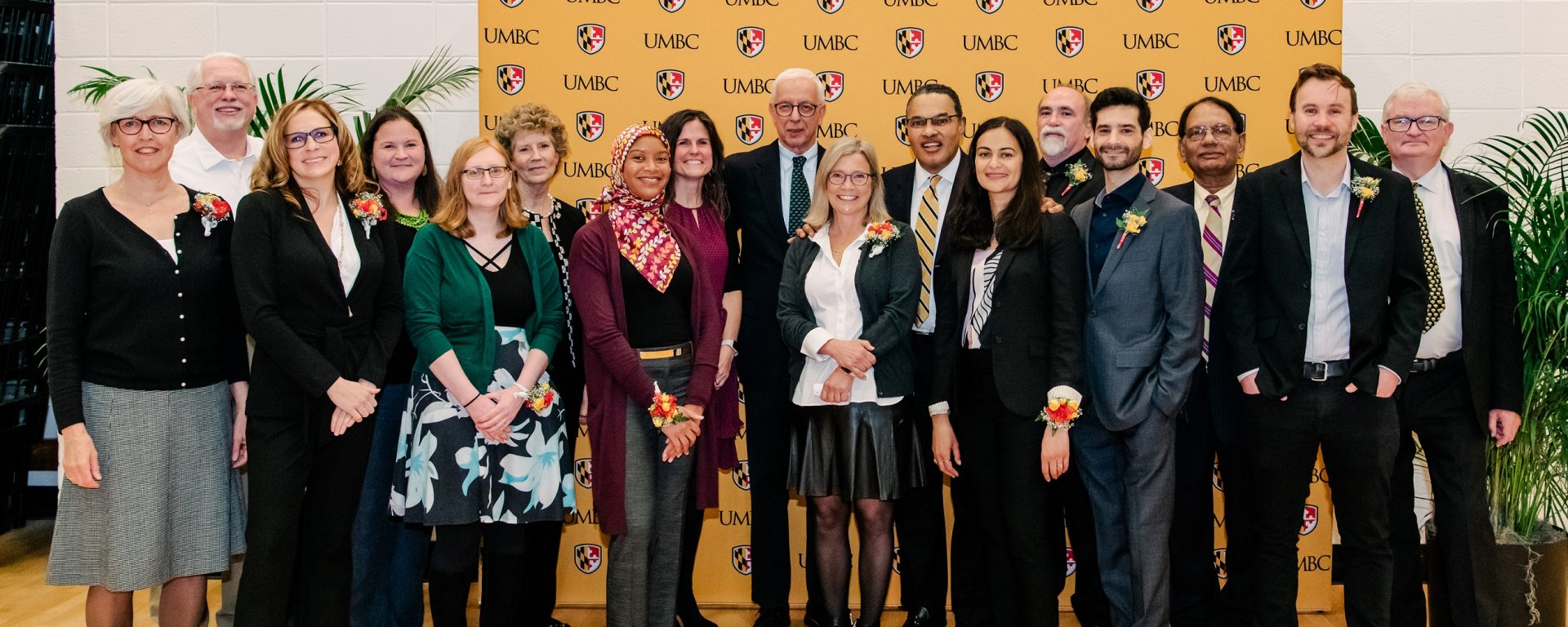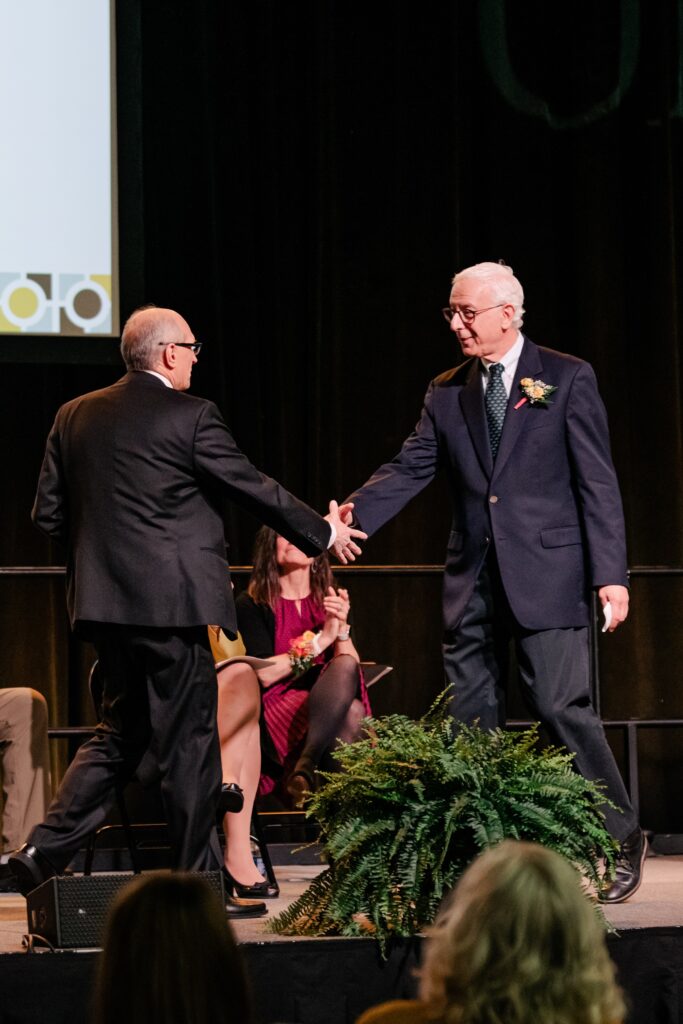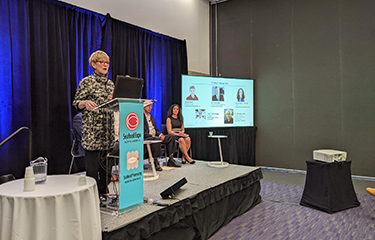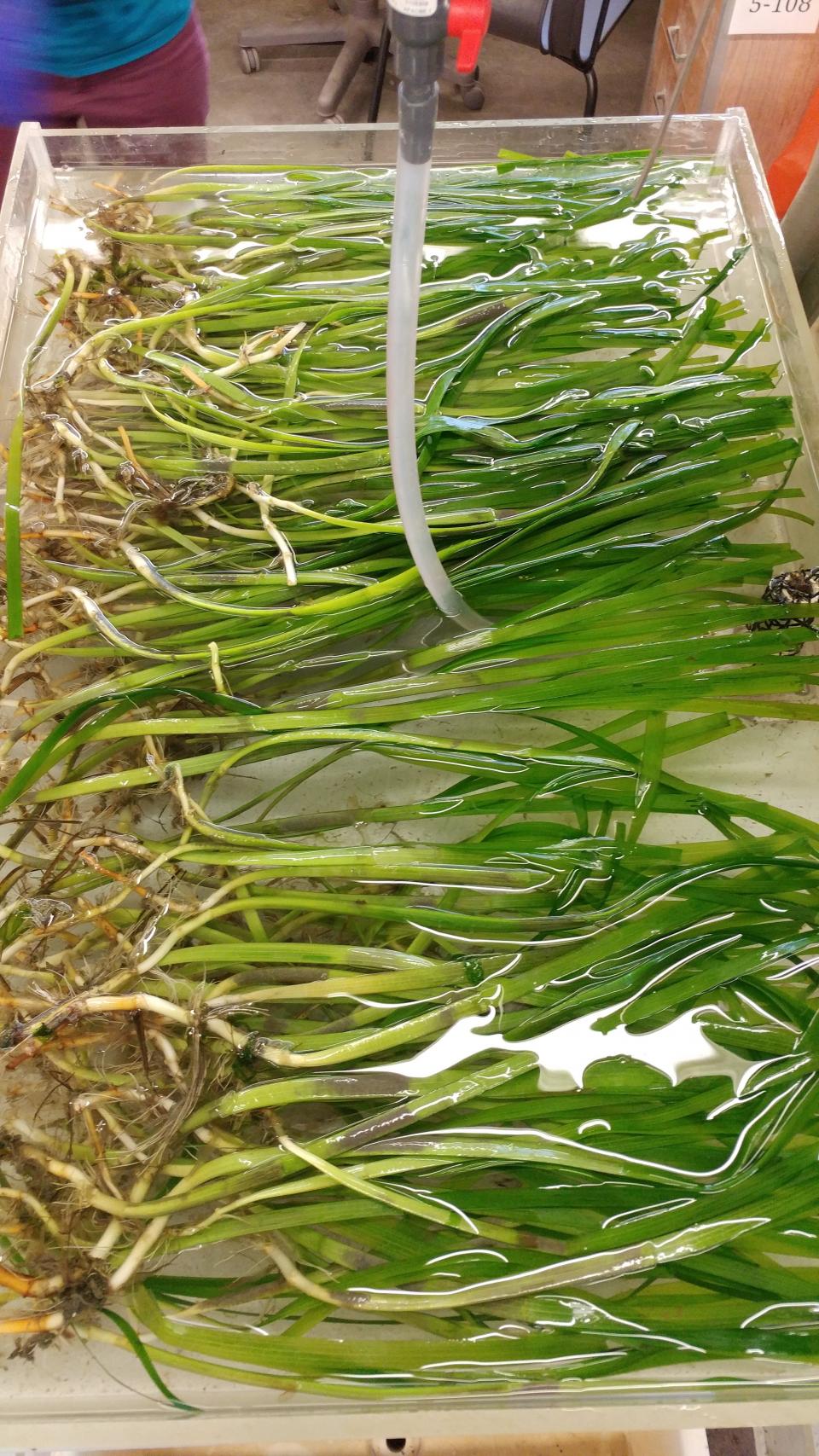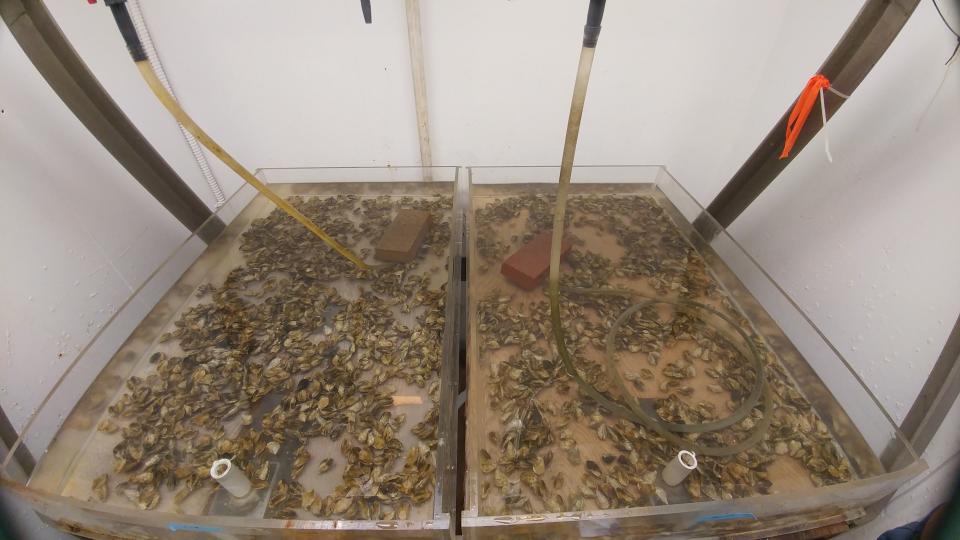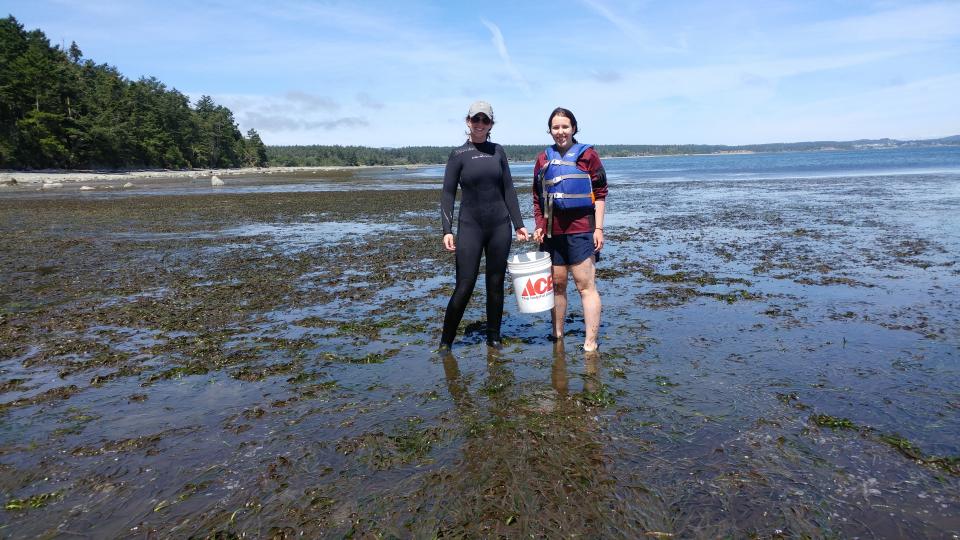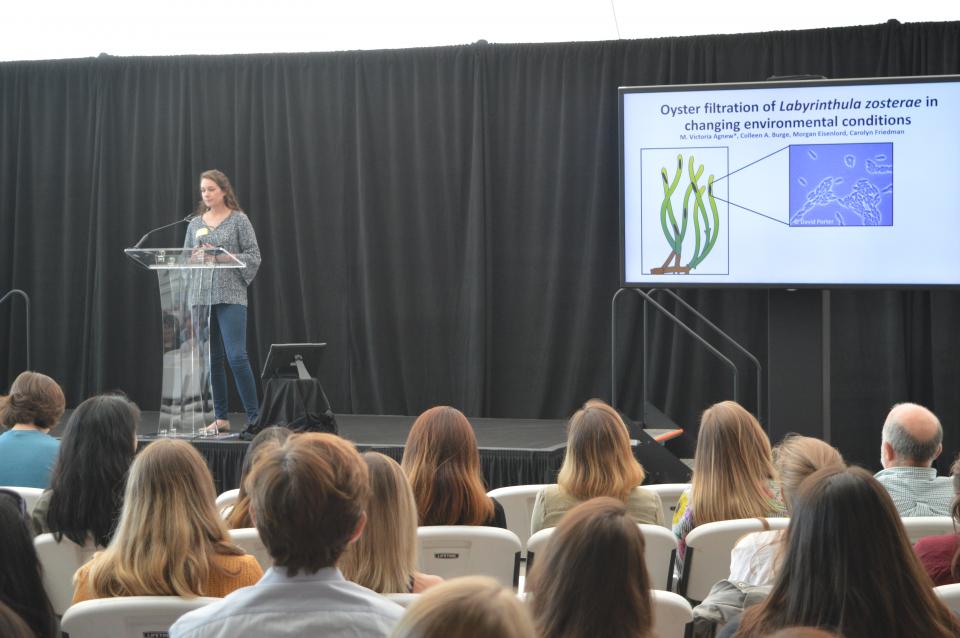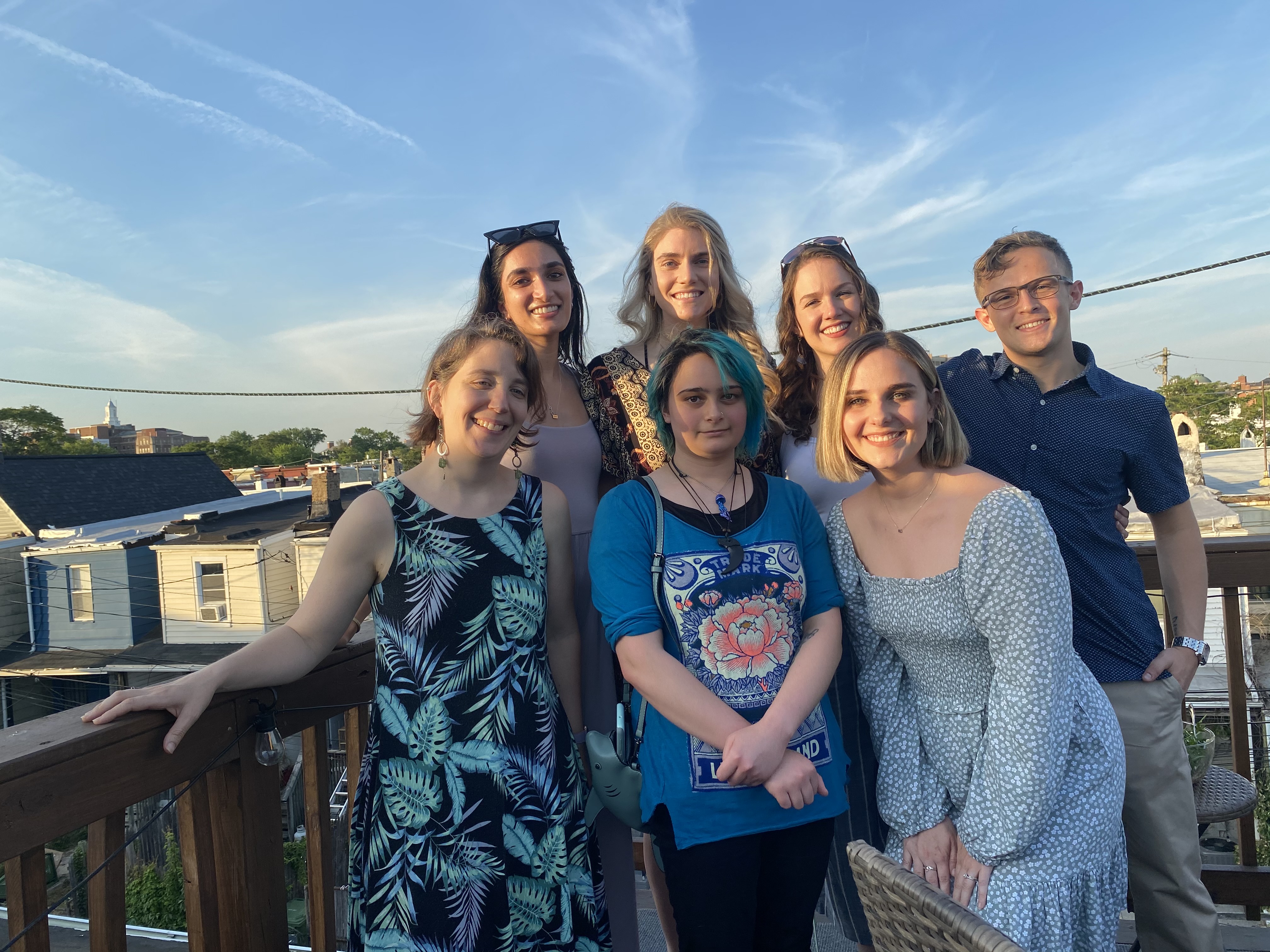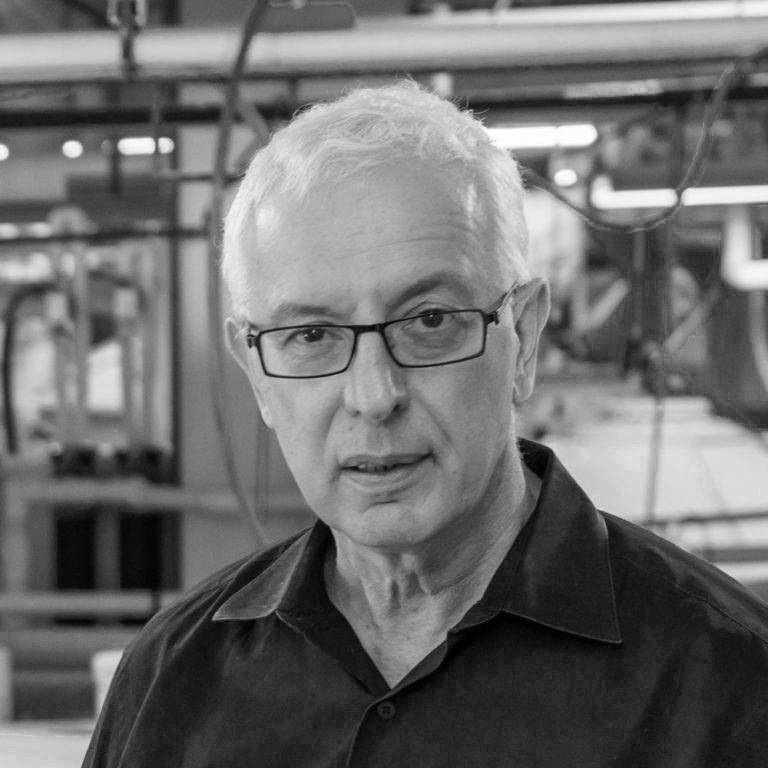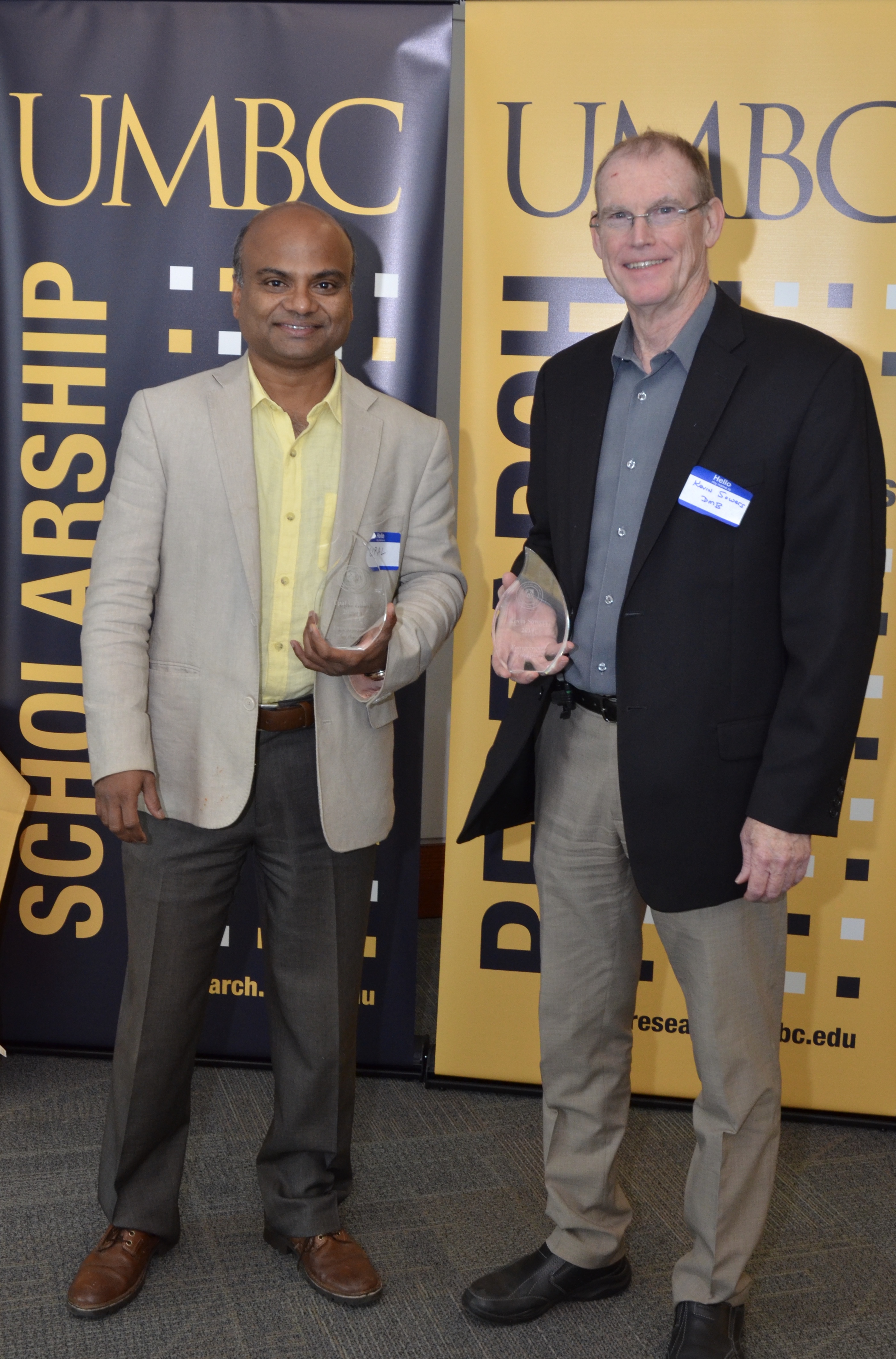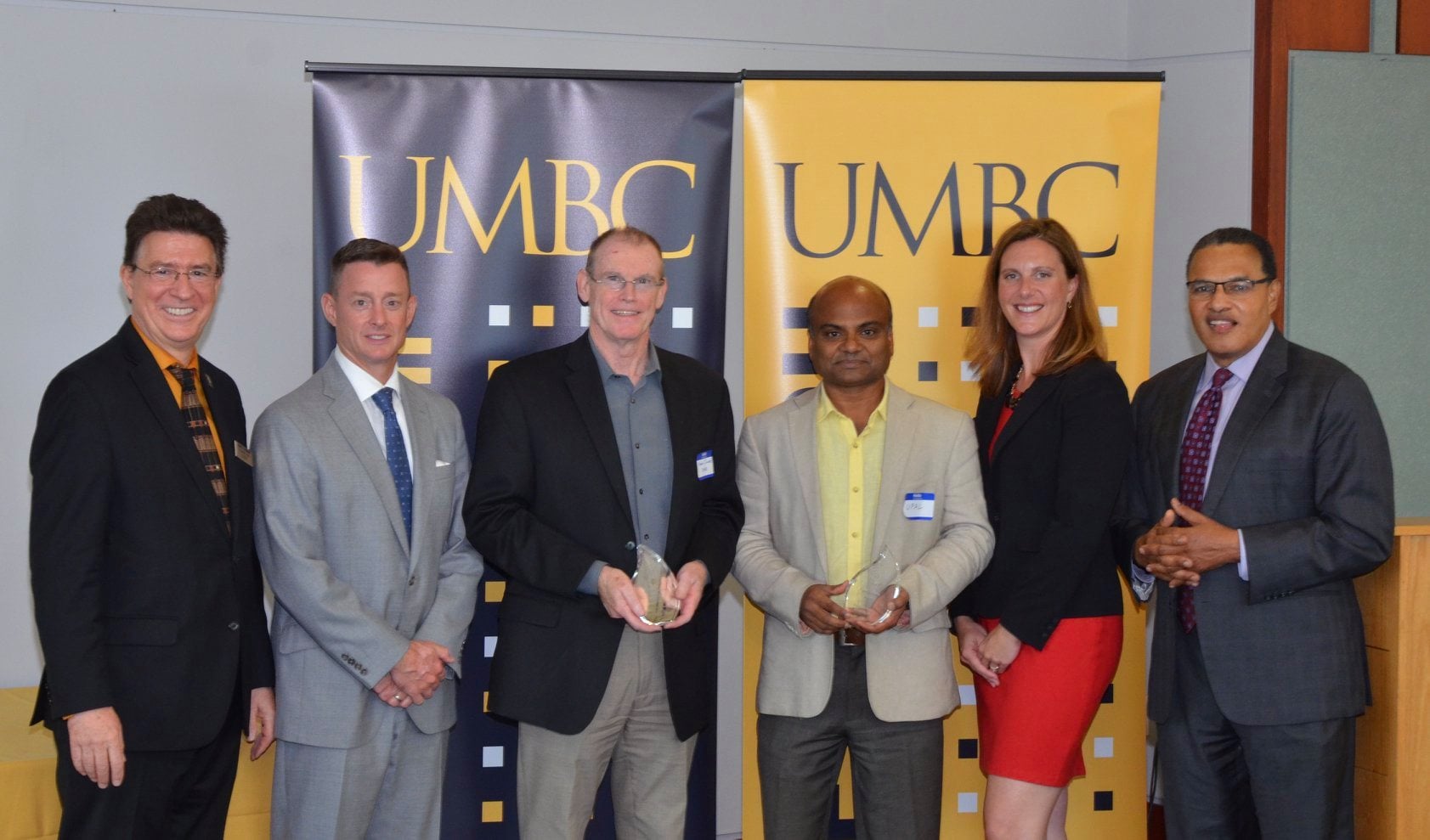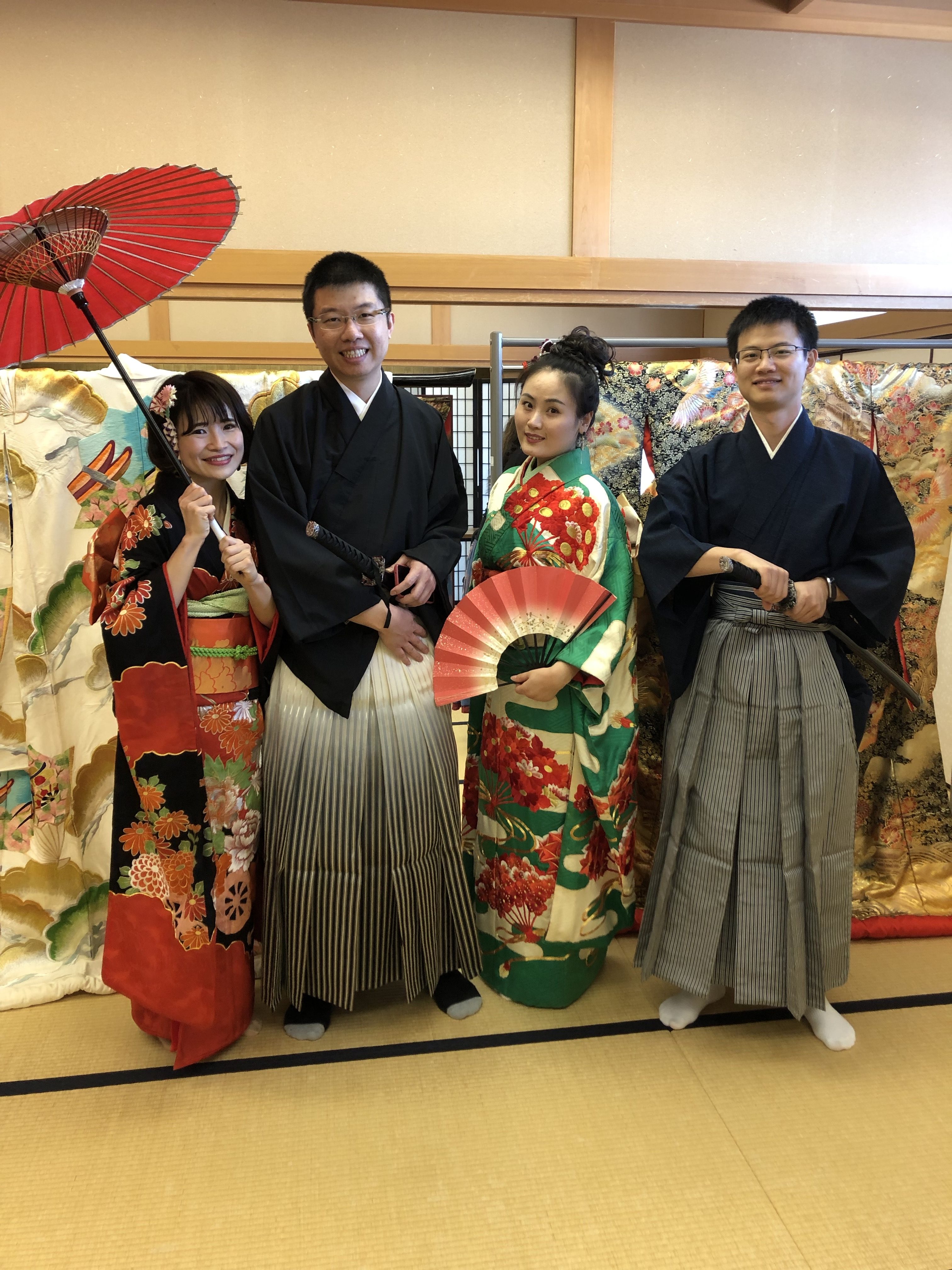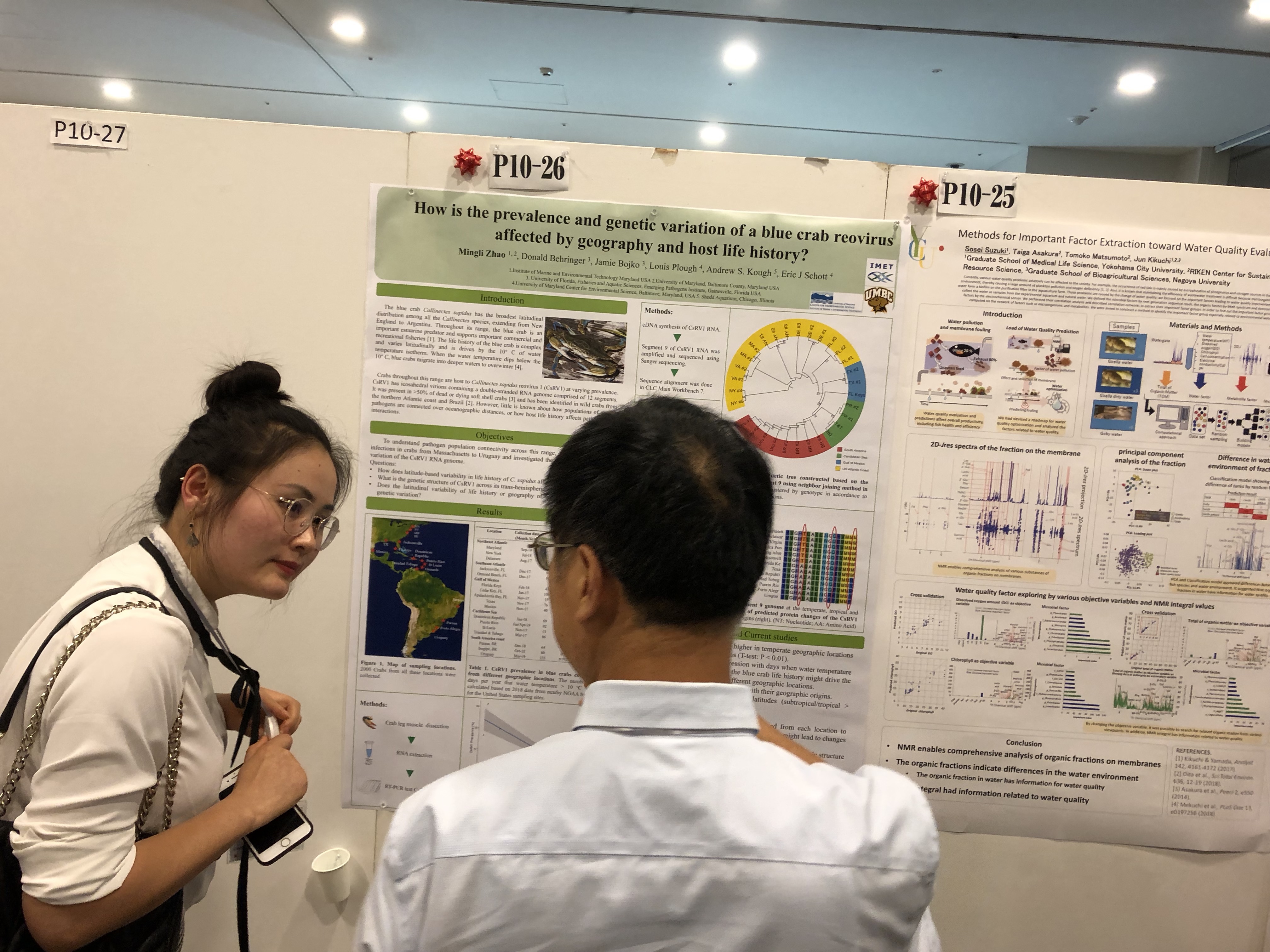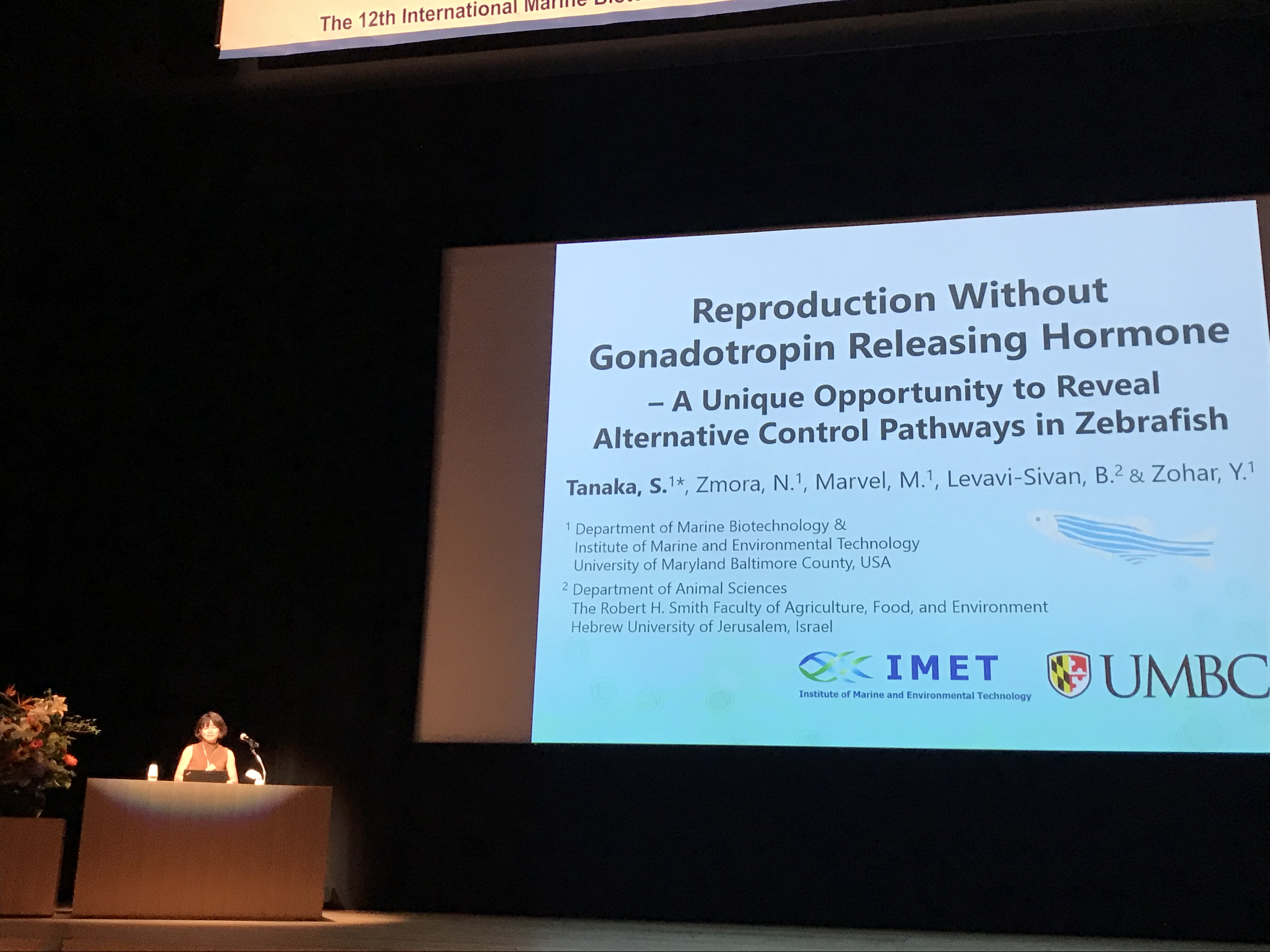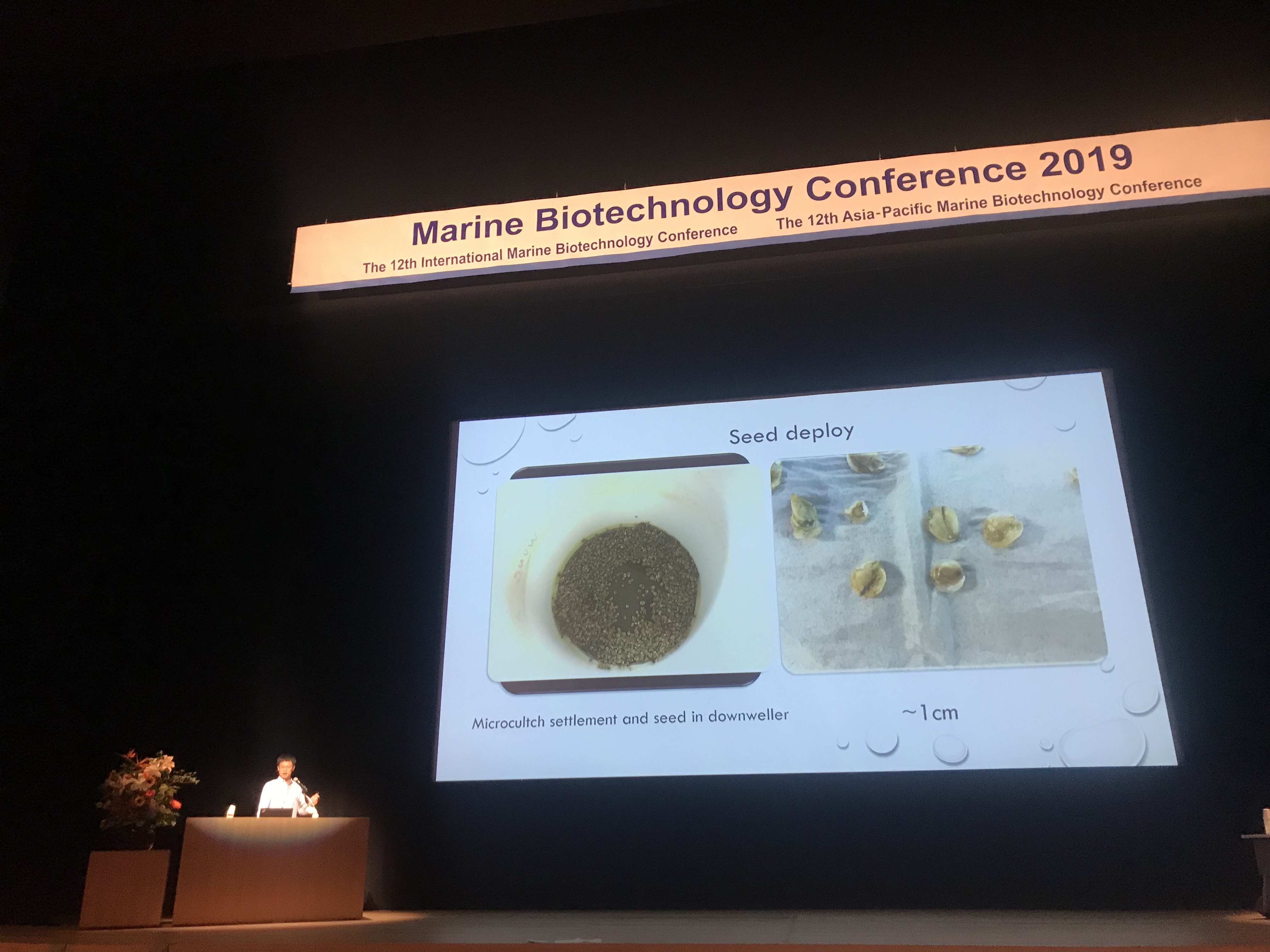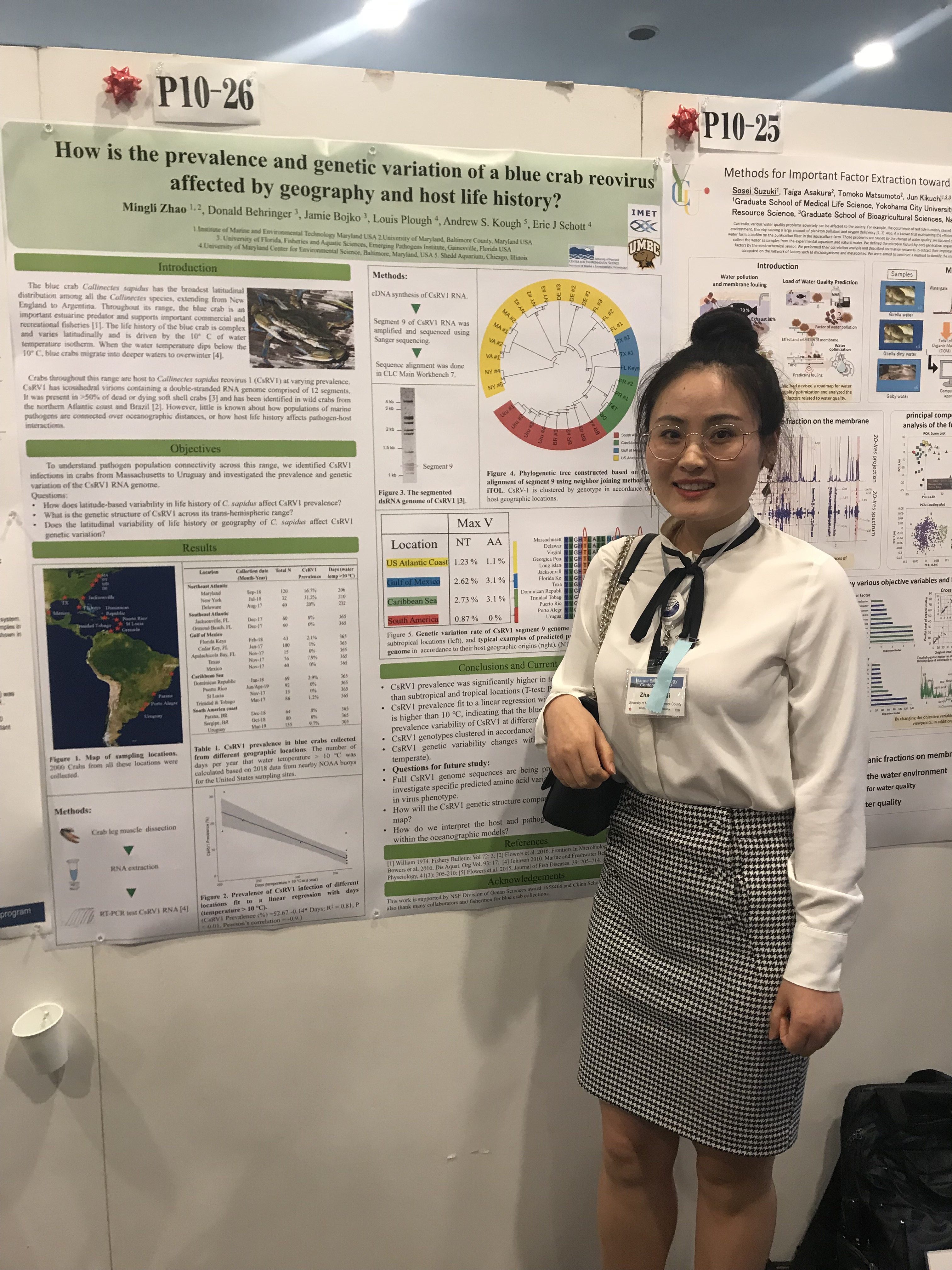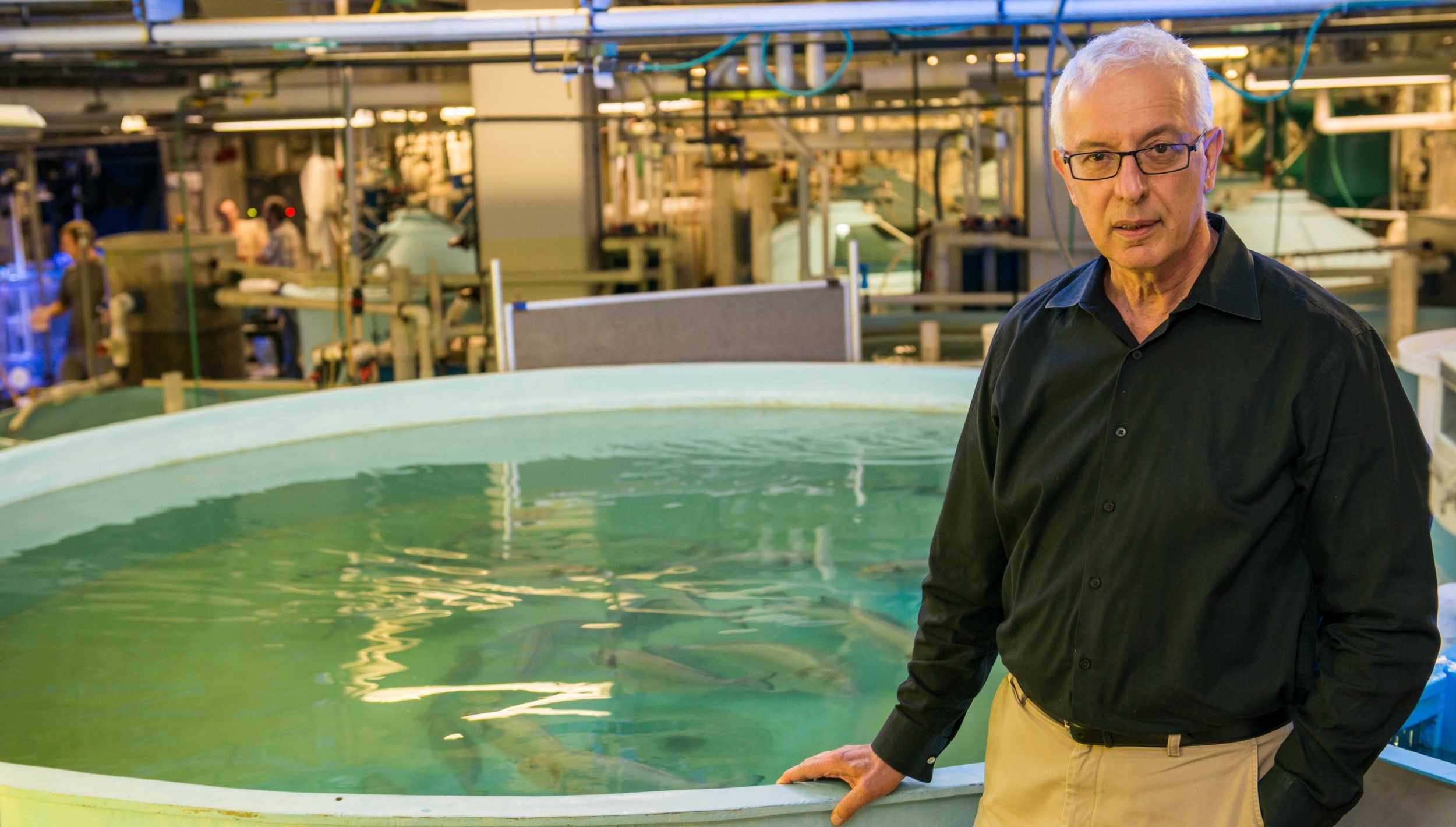Dr. Kevin Sowers (UMBC-IMET) and Dr. Upal Ghosh (UMBC) have already developed a technology that can remove harmful compounds from waterways and sediments. A recent grant from the National Institute of Environmental Health Sciences (NIEHS) will help them improve that technology and expand their impact.
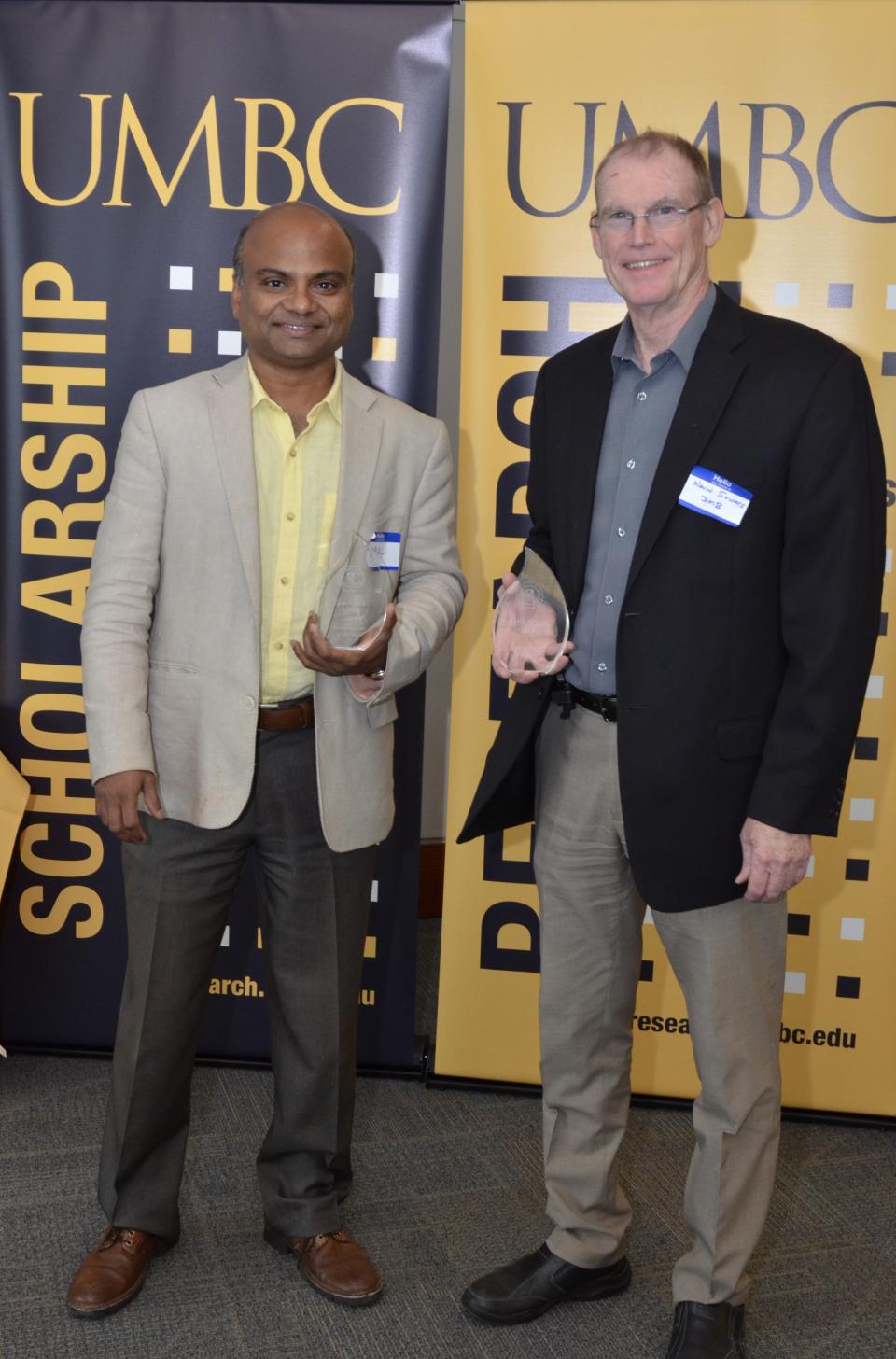
Using a group of specially selected microbes and activated carbon, the team has proven that they can remove polychlorinated biphenyls (PCBs) from sediments through a process called bioremediation. PCBs were banned in 1979 due to their toxicity, yet they remain in sediments and can enter the food chain, threatening both ecological and human health. Sowers and Ghosh founded the venture RemBac Environmental to apply their research to restoring contaminated sites and were named UMBC’s Entrepreneurs of the Year in 2019 for this work.
To evaluate the effectiveness of different materials, Sowers and Ghosh will conduct trial studies of graphite and activated carbon from bituminous coal and coconut shells. Ghosh brings a deep knowledge of materials science that will aid in this evaluation. Sowers brings decades of research on microbes that degrade chlorinated compounds.
With funding from NIEHS, Sowers and Ghosh will continue to improve their technology by answering questions like, “Are there materials that would be more effective for bioremediation? Would different materials be best for certain pollutants or areas?”
To expand the applications of this lab work, an ecological modeler joined the team. Dr. Amar Wadhawan, Senior Environmental Engineer with Arcadis, will create models to integrate an improved understanding of materials for bioremediation with information about specific site conditions. This will help scientists and environmental engineers create targeted solutions for project sites.
The overall impact of this new grant will be to improve our fundamental understanding of the interactions of microbes and different surfaces and improve the process for cleaning up sediment and groundwater. Sowers said, “This project will enable development of a platform that combines tailored materials with microbial activity to optimize bioremediation of PCBs in different environments.” With improved technology and modeling, remediation of Superfund sites and other contaminated areas will be easier and more effective, helping to create a healthier planet.
New MIPS Award to Vakharia and Larkin
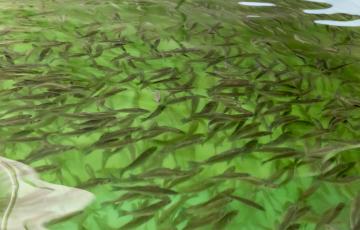
With a new grant from the Maryland Industrial Parternships (MIPS) program, UMBC-IMET Professor Dr. Vikram Vakharia has teamed up with IMET alum Dr. Mary Larkin and her company, Gaskiya Diagonstics, to develop inexpensive tests to diagnose pathogens in aquaculture. “Farmers need to test their ponds and get instant information so that they can quickly take action and mitigate disease,” says Larkin.
Read the full story on UMBC News
Dr. Yonathan Zohar to partner with aquaculture giant AquaCon in Maryland
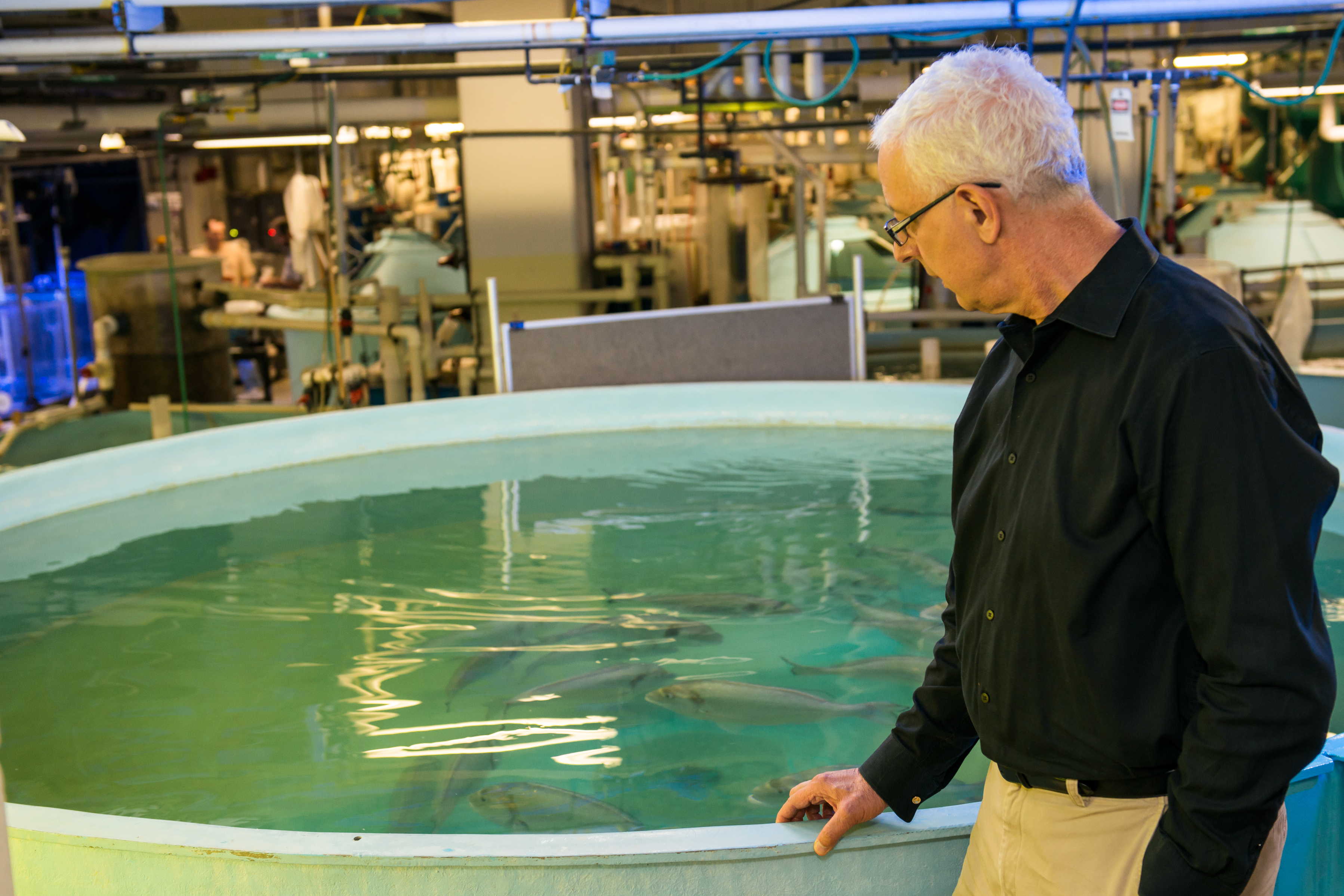
A new MOU between UMBC, IMET, and AquaCon establishes a collaboration on developing land-based aquaculture in Maryland. AquaCon made this decision after meeting with Dr. Yonathan Zohar and touring the Aquaculture Research Center, seeing all the innovation that will help them as they build up a new aquaculture facility. An article on UMBC News explains this collaboration, as well as the importance of Silfra BioSystems, a company started by Dr. Zohar and Dr. Kevin Sowers, to manage fish waste in aquaculture, and an NSF grant to Dr. Zohar for research on fish reproduction.
“It’s a perfect storm in a good sense, because everything is falling in place now,” says Zohar. “I’ve been working in Maryland for almost 30 years, and we’ve been developing a lot of these technologies. Our mission is research, education, and economic development, and we have been working to create connections between academia and industry to fulfill that mission.”
Read the full story on UMBC News
Read coverage in the Baltimore Sun
Ryan McDonald, Ph.D.
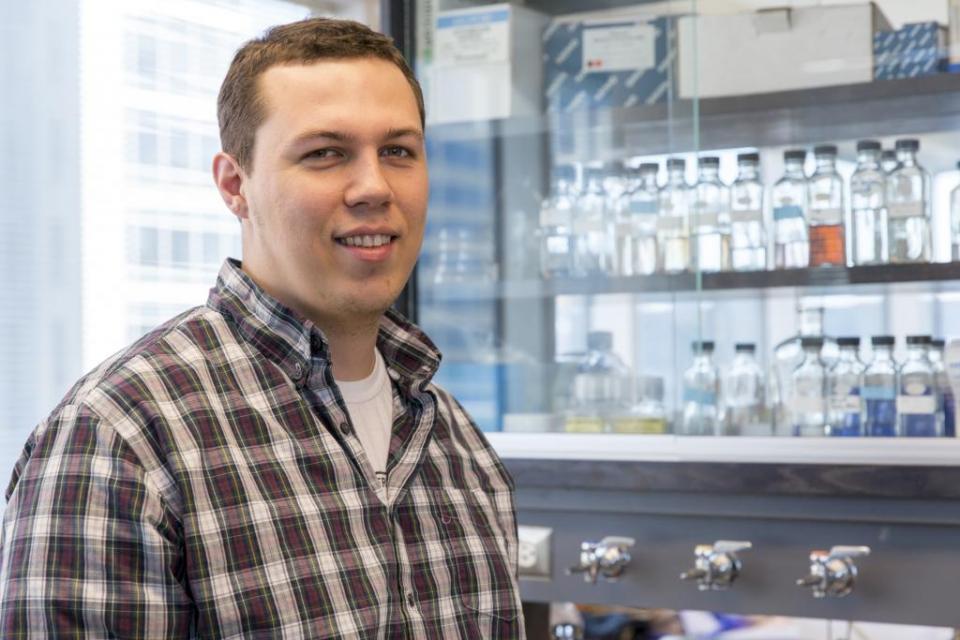
The Department of Marine Biotechnology would like to congratulate Ryan McDonald for being recognized by his mentor Dr. Hal Schreier with the Outstanding Graduating PhD Student Award.
Dr. McDonald graduated from the University of Maryland, Baltimore County (UMBC) on May 21 with a degree in Biological Sciences. He is currently working at the University of Maryland Center for Environmental Science (UMCES) as an Assistant Scientist in Dr. J. Sook Chung’s lab.
Salmon Aquaculture Network Project Underway
IMET-UMBC Faculty and Director of ARC Dr. Yonathan Zohar is the lead P.I. on the Recirculating Aquaculture Salmon Network (RAS-N). RAS-N, which was awarded a $1.2 million grant, is a national public-private partnership that brings together many partners to build capacity for land-based Atlantic salmon aquaculture in the US. At the end of 2019, the group convened in Wisconsin for their first annual meeting. In February of this year, RAS-N organized a dedicated Salmon RAS session at the Aquaculture America 2020 conference in Honolulu, Hawaii, where several partners and others presented their progress. You can read more about the project and these meetings on the Maryland SeaGrant Blog.
Dr. Colleen Burge invited to speak at UTA
Arlington, TX (October 22, 2015)Dr. Colleen Burge, an Assistant Professor at IMET, was invited to give a lecture at the University of Texas at Arlington as part of their colloquium lecture series. Dr. Burge’s lecture, titled “Host-Pathogen Interactions in a Changing Ocean”, discussed her research on diseases in sea stars and oysters, and the effects they have on the marine environment. Please watch the video above for more coverage on Dr. Burge’s lecture.
United Way Visits IMET
Posted: November 12, 2018, 10:25 AM
Students Find Success As Entrepreneurs After REEF Program
Posted: July 27, 2018, 8:34 PM
United Way, McCormick and Local Scientists Partner on New
FISH Program to Provide Healthy Protein
Posted: July 24, 2018, 2:04 PM
First Recipient of the IMET Student Fellowship:Sakura Tanaka
Posted: July 24, 2018, 1:59 PM
New test to rapidly diagnose sepsis
Posted: May 28, 2018, 8:37 AM
Aquaculture Swims Ahead
Chesapeake Quarterly Story
Posted: April 30, 2018, 12:37 PM
UMBC researchers win USDA grants to improve safety and effic
Improve Safety and Fish Farming Industry
Posted: October 10, 2017, 8:34 PM
UMBC Marine Biologist Colleen Burge
Works to Save world’s Oysters from Deadly Herpes Virus
Posted: October 10, 2017, 8:22 PM
A deadly herpes virus is threatening oysters world-wide
September 10, 2017 8.40pm EDT
Posted: September 13, 2017, 2:06 PM
IMET’s ARC Readies Sea Bass fry for Connecticut Aquaculture
Posted: August 30, 2017, 5:04 PM
- Go to page 1
- …
- Go to page 3
- Go to page 4
- Go to page 5
- Go to page 6
- Go to page 7
- …
- Go to page 9

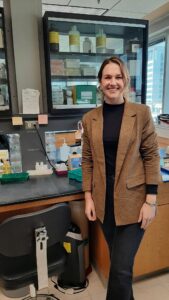
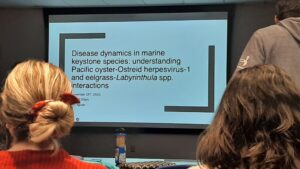

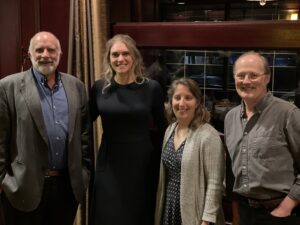
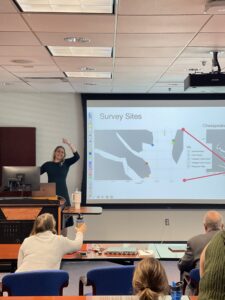
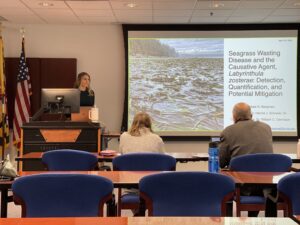
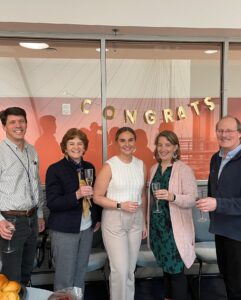

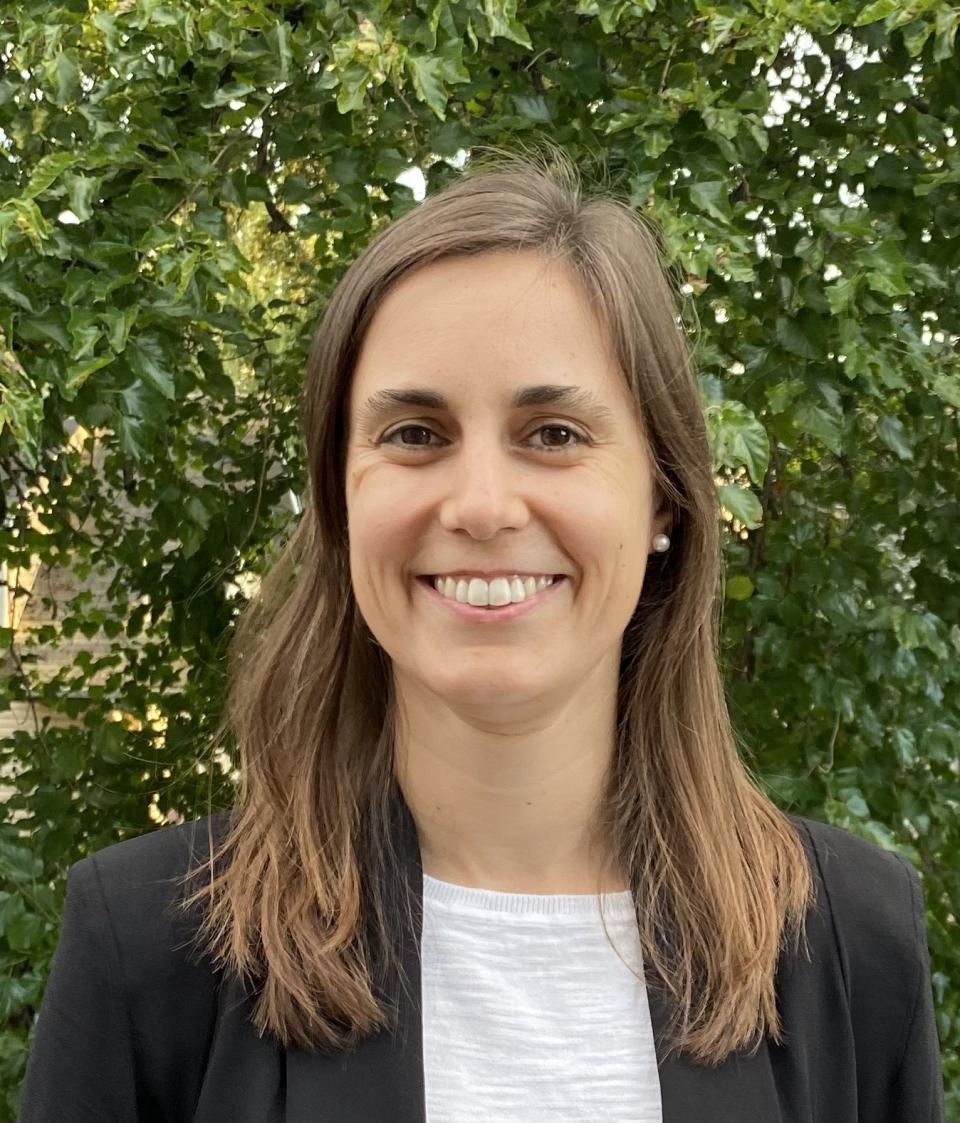
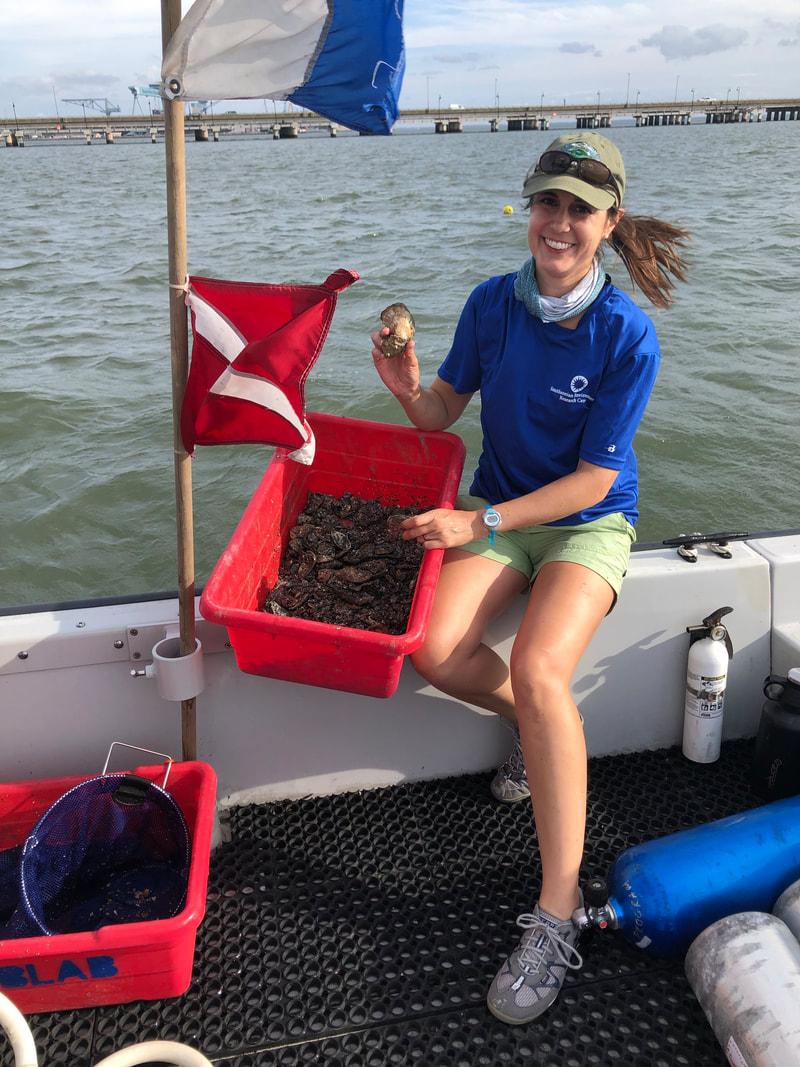
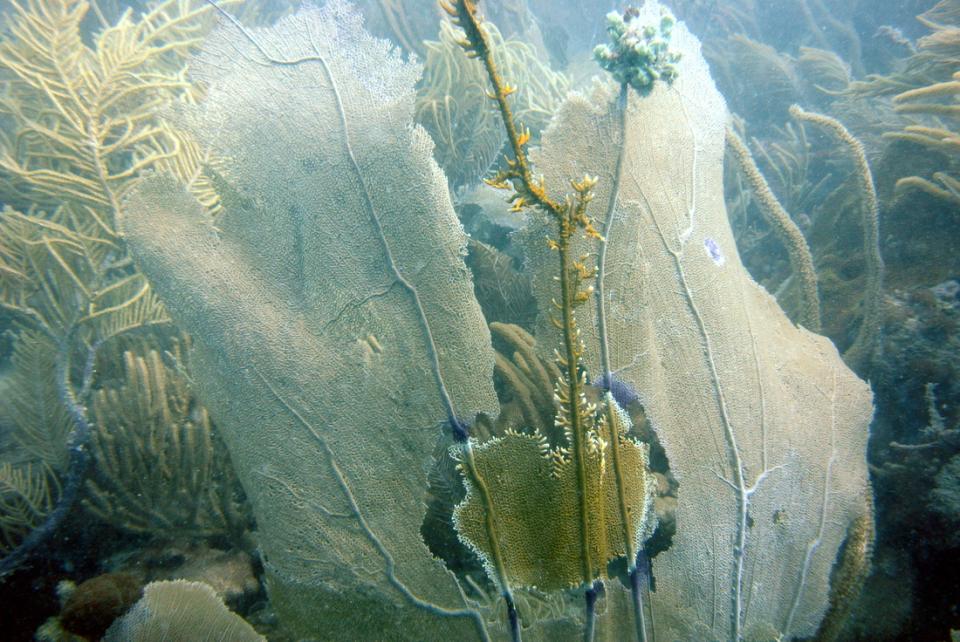
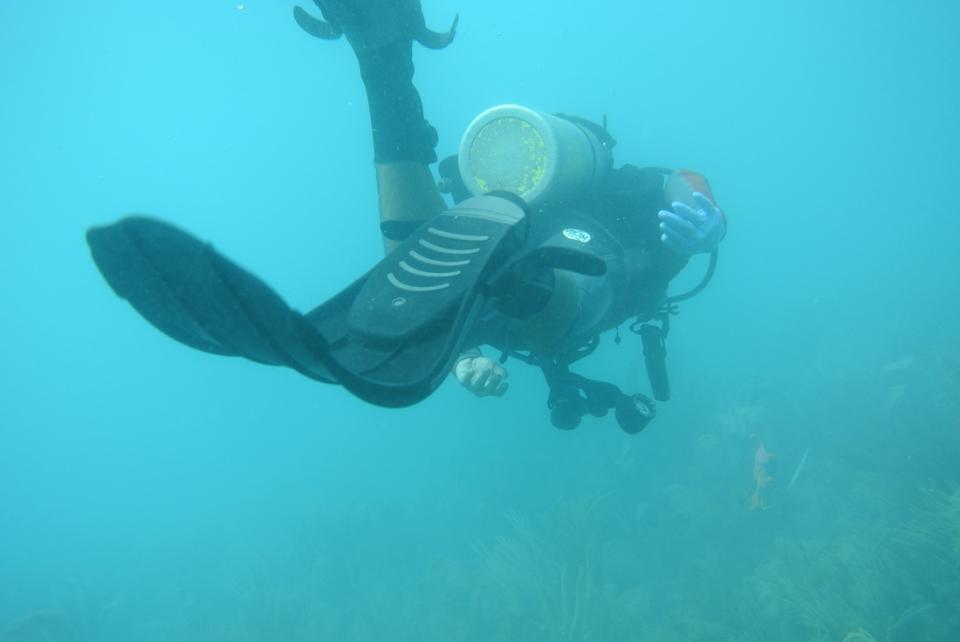
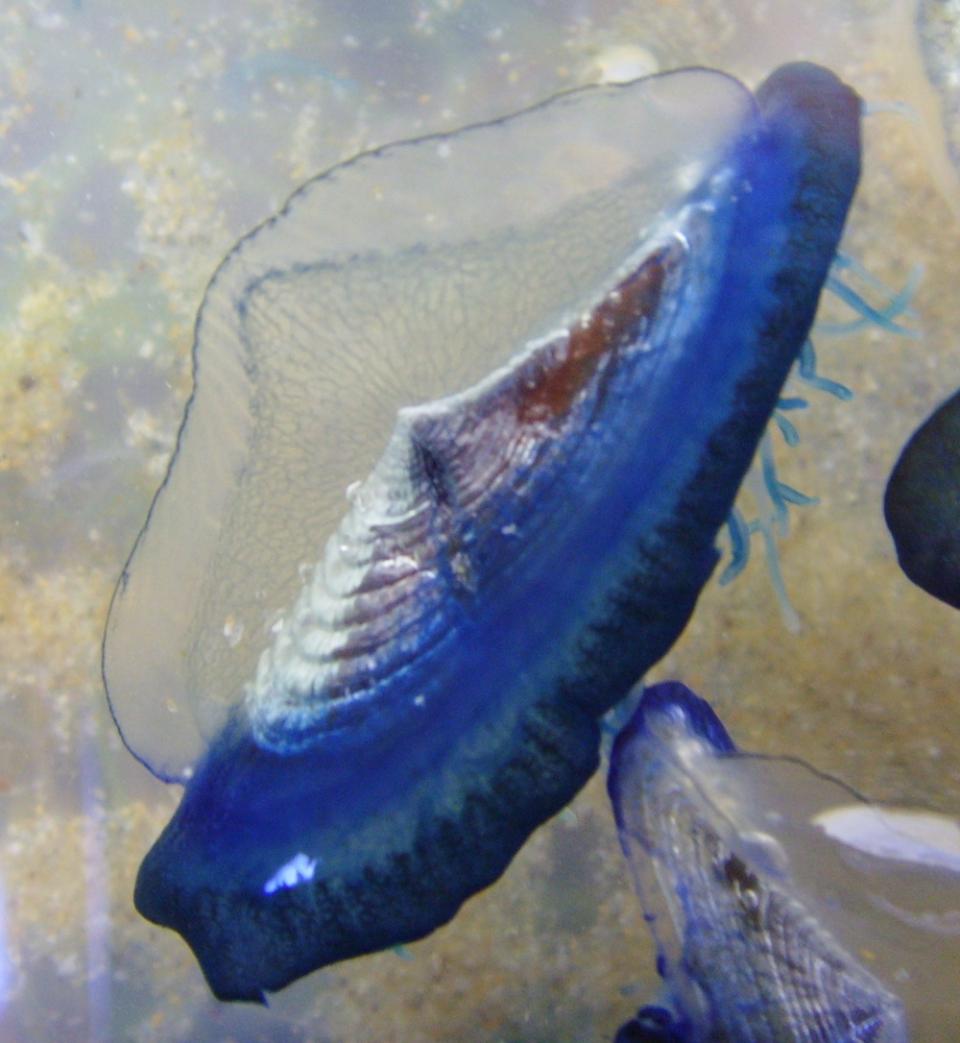



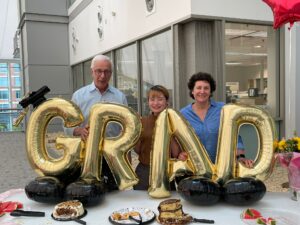
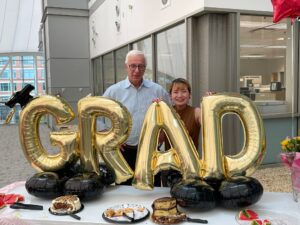
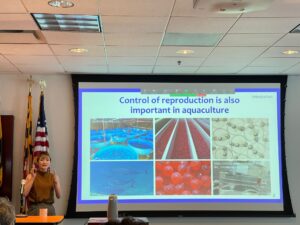
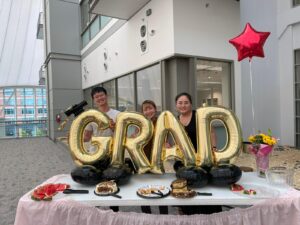
 s
s

